May 16, 2019
Do probiotics really seed or populate your gut?
How do you decide which strain or species of probiotic to take?
Do certain compounds enhance the efficacy of probiotics?
Should probiotics be personalized?
I tackle all these probiotic questions and many more in today's episode with Raja Dhir.
Raja is Co-Founder and Co-CEO of Seed, an ecosystem of kindred scientists, doctors, innovators, entrepreneurs, and translational storytellers from around the world. Seed's members collectively believe in the potential of the microbiome to improve human and planetary health.
Raja leads Seed’s research strategy and academic collaborations, clinical trial design, product development, and intellectual property strategy. He is the architect of the Seed Platform and has unique expertise in translating scientific research for product development – including patented inventions to stabilize sensitive compounds to improve human microbiome diversity and inflammatory biomarkers. He’s also the co-chair of Seed’s Scientific Advisory Board where Seed focuses on solving complex ecological problems including honeybee colony collapse, plastic degradation, and soil fertility through bacteria.
Raja is an entrepreneur-in-residence at the Church Lab in the Department of Genetics at Harvard Medical School and is a director and co-chair of the Scientific Advisory Board for Micropia, a $20MM microbial ecology/education platform and the world’s first museum dedicated exclusively to microbes. He also serves on the Editorial Board for the scientific journal, Microbiome, on the Industry Advisory Committee for the International Scientific Association for Probiotics and Prebiotics (ISAPP), and is a member of the New York Academy of Sciences (NYAS), the American Society for Microbiology (ASM), and the American Association for the Advancement of Science (AAAS), among others.
During our discussion, you'll learn:
-Why we misunderstand probiotics and especially probiotic research…8:30
- Raja's research paper: Probiotics: What they are and what they are not
- We're understanding more and more about the gut and microbiome every day
- An organism must show that it has a specific effect on the body before the term “probiotic” can be used
- The term “probiotic” is unregulated in the United States
- Consumers are way ahead of the science
- Proper definition of a probiotic: live microorganisms, which when administered in adequate amounts confer a health benefit on the host
- Unscientific research on probiotics has led to damage in credibility in the field
- Taking one single data set that's not causative and applying the results to the entire field is an unscientific practice
-The recent studies on probiotics that Raja mentions, and sometimes criticizes, in his work…13:45
- Conducted by the Weizmann Institute
- Got subjects to consent to invasive small intestinal biopsies, versus just the colon
- Ordinarily, you test the large intestine only
- An overemphasis on testing stool samples
- Fallacy: Collecting large amounts of data will give you an accurate answer
- How classical biologists are different:
- Have a hypothesis,
- Narrow down an intervention,
- Test (in a large enough sample size) and look for biomarkers that change in the host
- How the test worked:
- Gave 3 groups of people large amounts of antibiotics
- Gave one group probiotics, one group allowed to recover spontaneously (watchful waiting), third group FMT; their own stool injected back in rectally
- Hypothesis: What's the fastest way of recovering to your normal baseline?
- After 90 days, everything lost statistical significance; all 3 groups indistinguishable from one another
- 3 things you can do to improve an infant's health
- Vaginal birth
- Not having antibiotics during birth (if you have a c-section)
- Breastfeeding
- Do at least 2 of the 3 correctly, you dramatically increase the chances that the infant's microbiome will develop normally
- Science should not be a sensationalistic field
- Temptation to exploit research for short-term PR gains
-What regulations or standardizations exist when it comes to the microbiome and probiotics…23:25
- Contract manufacturers: used by big dairy companies, big business, probiotics found in local grocery stores
- European facilities are better equipped due to dietary differences
- Species vs Strains:
- Ex: Chihuahuas and Dobermans are different strains of the same species
- Some strains are up to 70% different from strains of the same species
- Must be tested on humans, otherwise should be called a microbial product vs. a probiotic product
- Some less disciplined companies benefit from the existing ambiguities in the probiotic field
-Raja's answer to the flaws in probiotic research he discusses in his paper and in his work…27:15
- The paper concludes with an optimistic view; possible changes in the next 5 years
- Click here for a table of physiological and metabolic processes influenced by the human microbiome according to Raja's research paper.
- Activating a switch in the body that prevents and reverses food allergies
- Minimum requirements before anything should call itself a probiotic
- Declare the genus, the species, and the strain
- Undergo minimum one human clinical trial
- If you didn't get all that, get this: While there is tremendous potential and reason for optimism in the field of probiotics, overuse of the term in the media and commercial use “cheapens” it and could discourage serious scientists from pursuing it to its full potential.
-Whether or not probiotics interact with the microbiome…34:30
- Article: Human gut study questions probiotic health benefits
- Probiotics are “transient microbes”; they don't take up permanent residence in any part of the body
- “Seeding” is the process by which an infants microbiome is first colonized by microbes
- Typical time a probiotic stays in the microbiome is ~8 weeks
- Daily consumption is necessary (kind of like coffee)
- Why not just eat fermented foods all the time?
- Only 4-5 out of several hundred bacterial strains in kimchi had probiotic potential (by the standards laid out in Raja's paper)
- Kombucha companies should do randomized controlled trials
- Terms like “immunity” and “anti-inflammatory” are misleading
- Certain bacteria can become “extinct” in as little as 4 generations when fiber is removed or reduced
- Certain populations do not need to take a probiotic because of their lifestyle and diet (ex. the Hadza people)
- “Detoxification” is oftentimes a misnomer;
- The body has its own detoxification pathways that are regulated by the nrf2 transcription factor
- Triggers for activation of the pathways: extended exercise, access to a wide variety of phytonutrients,
- Things that are bad for you are good for you
-The varying effects from different species and strains of probiotics…46:35
- Biotransformational nutrients: take existing food particles and convert into secondary metabolites and unlock new nutrients
- Probiotics supplement the existing micronutrients and gut bacteria
- “Consuming little soldiers that make their own multi-vitamins”
- Pomegranate is standardized for punicalagin: turned by already existing bacteria in the gut into Urolithin A
- Article: Urolithin A induces mitophagy and prolongs lifespan in C. elegans and increases muscle function in rodents
- Potential anti-aging benefits
- Thesis: How can we unlock the power of microbes or bacteria to confer benefits to their human hosts
-How probiotics affect males and females differently…52:35
- Women have a longer digestive tract than men, which leads to more issues with the digestive system
- Females could benefit from a folate producer in their gut during pregnancy; would be out of place in a male
- Environment & diet are of far more significance than gender
-Raja's take on companies who recommend particular probiotic strains to consume based on tests of the gut and microbiome…56:10
- Still no consensus on what determines a healthy microbiome
- Recommending a particular product based on test results is problematic
- Genus vs. species vs. strain recommendations; the more specific the better results
- “Relative abundance” vs. “absolute abundance”
- Better approach: take specific strains identified to treat specific issues
- Stratification, personalized approach, is not the optimal goal
- The gold standard is a microbe that is applicable to the entire human (or mammal) population and has reproducible effects
- To conclude: There are some good things about microbiome tests; however, use caution when they recommend certain products based on the test results
-Whether personalized microbiome testing will allow people to target a probiotic species for their specific gut profile…1:03:00
- Yes, but it will not look anything like the probiotics that are on the market today
- Some organisms won't grow if other like organisms are not in the mixed community
- The gut is an ecosystem; ecosystem theory comes into play
- Diversity and seasonality of plants rich in phytonutrients and high fiber foods
-The importance of the CFU (colony forming unit) of a probiotic…1:10:24
- Depends on the study and the trial
- Shotgun approach: inject high density of organisms into the gut and hope for the best
- Before you take any probiotic…
- Ask the company to show the studies on their strains
- Have they been studied in a human population
- And for what endpoints
-What Raja is most excited about with his work…1:18:10
- Get 15% off your first order from SEED when you use discount code: BENGREENFIELD
-And much more…
Click here for the full written transcript of this podcast episode.
Resources from this episode:
-SEED Male Probiotic formula. Click here and use discount code: BEN15
-SEED Female Probiotic formula. Click here and use discount code: BEN15
-Probiotics: Reiterating What They Are & What They Are Not
-Documentary: “Missing Microbes”
-Article: Human gut study questions probiotic health benefits
Episode Sponsors:
–Kion: My personal playground for new supplement formulations. Ben Greenfield Fitness listeners receive a 10% discount off your entire order when you use discount code: BGF10.
–Four Sigmatic: I’ve been using Four Sigmatic products for a while now, and I’m impressed by the efficacy of their mushroom products. I use them. I like them. I support the mission! Receive 15% off your Four Sigmatic purchase when you use discount code: BENGREENFIELD
–Clearlight Saunas: You can be sure that I researched all the saunas before I bought mine and Clearlight was the one that stood out from all the rest because of their EMF and ELF Shielding and their Lifetime Warranty. Use discount code: BENGREENFIELD to get $500 off your sauna and a free bonus gift!
–Birdwell Beach Britches: Quality is our Gimmick isn’t just our slogan, it’s a commitment we honor with every stitch we sew. 100% money back guarantee. Get 10% off your order, PLUS free shipping on any order over $99 when you use discount code: BENG.



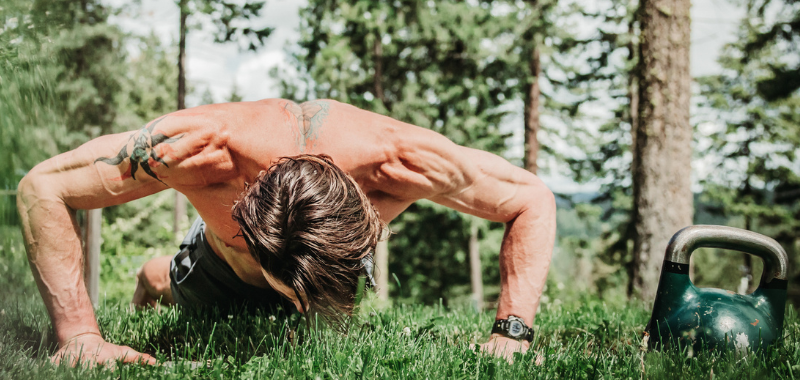


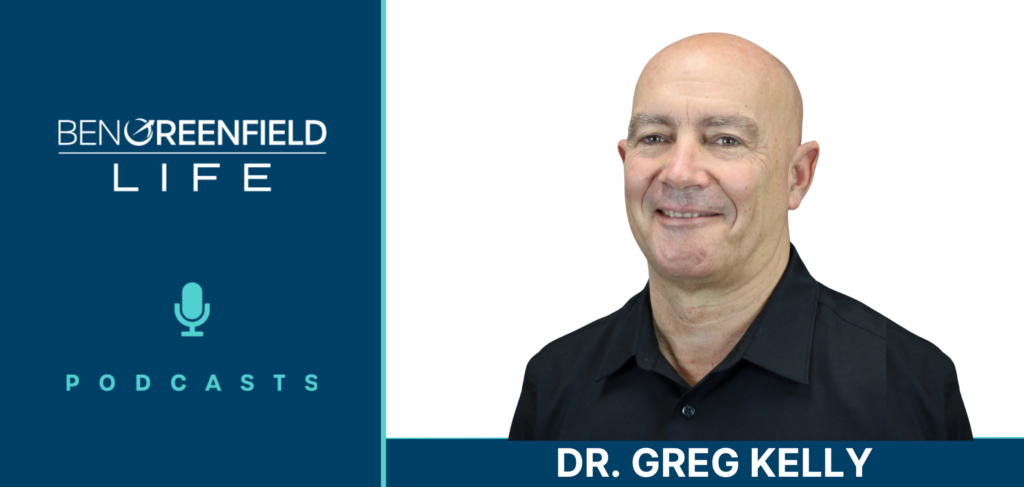


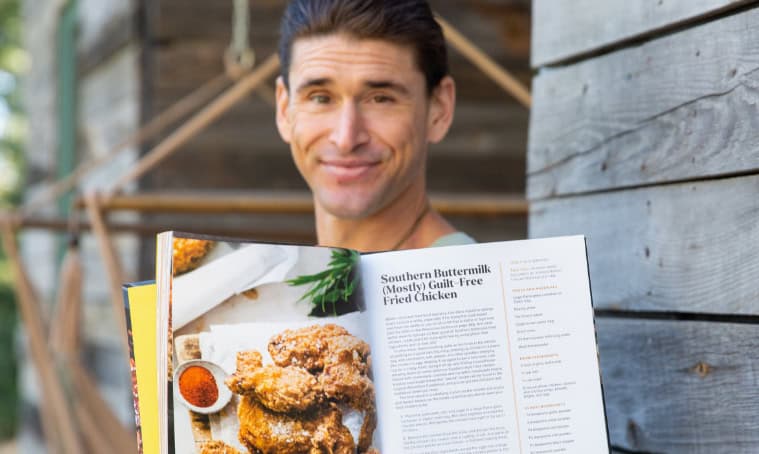

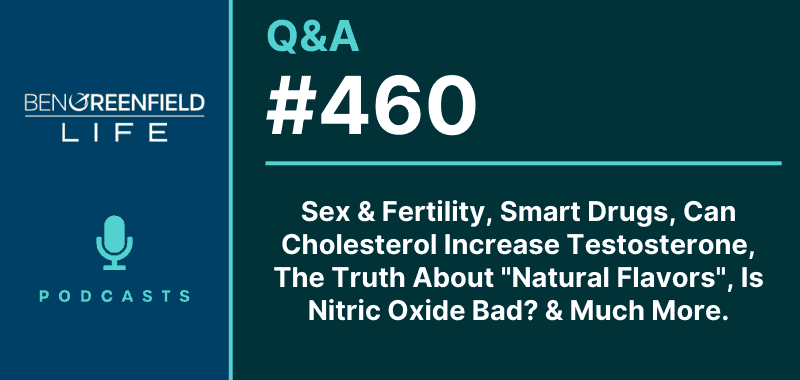
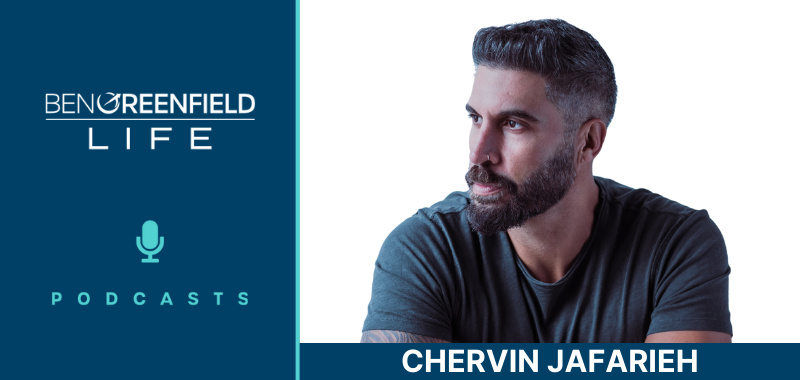

This company is basically scamming me for their probiotics. Having received a shipment and have been charged twice ! They don’t pick up the phone when I call, everything is automated with their email system.
I didn’t even know i could have a c section without antibiotics… i thought it was necessary since its such an invasive procedure. I had one and had it through iv at the hospital only and only breastfeed until my baby was 4 months because i had to have a breast surgery. OmG what should one do in this circustances to improve baby’s gut health????
I’ve been taking seed probiotics for about 10 months now. I would like to increase my dose to 3 instead of the recommended dose of 2. Do you have any insights on this?
This study says that eating pomegranate may be positive, negative, or neutral depending on one’s microbiome. The results are positive if the microbiome produces urolithin-A and negative if the microbiome produces urolithin-B.
https://www.nutraingredients.com/Article/2017/03/…
The source study is “The gut microbiota metabolism of pomegranate or walnut ellagitannins yields two urolithin-metabotypes that correlate with cardiometabolic risk biomarkers: Comparison between normoweight, overweight-obesity and metabolic syndrome.”
M.V. Selma et al. Clin Nutr. 2018 Jun;37(3):897-905. doi: 10.1016/j.clnu.2017.03.012.
https://pubmed.ncbi.nlm.nih.gov/28347564/
Is there a way I can find out whether eating pomegranate is good or bad for me?
Oh, I think I can just buy the product and the appropriate Gordonibacter species is probalby in it.
Hey both, thanks for a great podcast!
We recently had a son who unfortunately was born via emergency c-section and also was given antibiotics due to the circumstances of the birth.
He’s doing great thankfully, but I want to know if either of you have a recommendation for what we can use to supplement breastfeeding in hopes of giving his gut as good a start as we can
Hi Raja / Ben,
Is Seed for males now out of stock? When I try to buy a subscription it’s only giving me the option to “pre-order”.
Thanks for the info.
I have the MTFHR gene mutation and I am certain my 6.5 year old son does as well. What do you recommend for us? Both myself (49 year old female) and my son were born via c-section. I have major elimination issues.
thank you,
Joan
Here's a good resource to check out: http://bit.ly/2WcpVcV
Hello! I was wondering when the baby formula would be available. Thank you!
Ben or Raja –
How does the seed product jibe with a prenatal that has priobiotic included? Do you recommend that I switch to a different prenatal vitamin?
Raja, It says it has algae in it and before I buy I was wondering if I can take this if I have a shellfish allergy?
Raja, do you give your product to your dogs? Is there anything in the product that would be harmful to dogs?
I’m wondering if nuts and seeds are included in the 30 different fruits and veggies per week? Thanks!
Can you make a hit list of your 30 fruits and vegetables in any given week ?
Thanks
John
I was EXTREMELY interested in the comment that probiotics supplement the existing micronutrients and gut bacteria and that they can make their own multi-vitamins. Does this mean that Seed can be used in place of a daily multivitamin for a non-athlete? I would really appreciate Raja’s thoughts on that.
Both Seed and BiOptimizers totally killed my libido and lowered my testosterone until I got off of them (didn’t take both at the same time btw), so be careful. Each of us has a unique microbiome.
Hi Hans, thanks for the note. While we have not directly looked at serum testosterone levels following administration of our product, previous trials have not shown a mechanism or inverse relationship between probiotic consumption and testosterone levels. Animal studies show that specific strains of probiotic supplementation (conducted at MIT in aging mice) have actually shown a beneficial effect. If you’re curious for more information, check out: ‘Probiotic Microbes Sustain Youthful Serum Testosterone Levels and Testicular Size in Aging Mice” https://www.ncbi.nlm.nih.gov/pmc/articles/PMC3879365/’
I have gotten a similar effect after using it for a while, I even had less energy during my workouts for some reason.
Thanks for the informative podcast. I’ve also read that bacteria is only half the answer with the other half being fungi. Is there anything to this? If so, does Seed address any of the fungi in our intestines?
Hi there, there are definitely fungal communities in the gut, termed the ‘mycobiome’. However, no products on the market have shown that they have any effect on gut fungal communities, and products marketing around this term ‘access’ this marketing tool by including a common strain of yeast in their product, called Saccharomyces cerevisae (which is simply a common brewer’s yeast). We have looked at the role of our strains on inhibiting fungal communities in vitro, and in particular two of our strains have inhibited 4 species of Candida. Please note, though, that this study was a mechanistic study, rather than our other clinical studies which have been conducted in large scale human trials.
Raja, you mention that “two of your strains inhibited 4 species of candida”. Are these two strains included in both of your products? I couldn’t find the study on your website. Thank you.
Did I miss the list of scientific studies answering the question the guest tells us to ask each company ?
i.e: where are the studies in humans for each of the indications the Seed probiotics claim to fix?
You may access the strain-specific clinical studies associated with each benefit at seed.com/reference. Simply scroll down to the section titled “Our Daily Synbiotic: bacteria with benefits.”
Would be interested in both of your thoughts on soil based probiotics. You spoke for a bit about the gut health of those living on farms/with a closer connection to nature, and thought the subject of supplementing with these organisms might come up. Any thoughts?
While there is evidence to suggest agrarian living, especially early in life, has a benefit on the developing immune system, the research on soil based organisms in human intervention studies is lacking outside of very narrow conditions. In particular, we are cautious about spore-forming organisms being consumed unless they have been shown to maintain the stability of the microbiome in longitudinal studies. We do not know of soil-based organisms which have shown a benefit for many of the core indications we have targeted, including intestinal transit time, stool consistency, stool hydration, intestinal barrier integrity, modulation of the gut / skin axis, bile salt hydrolase activity, expression of NRF2 pathway, short-chain fatty acid production, or micronutrient synthesis.
Hello, I have CIRS and struggle with histamine issues due to that. I know some probiotics may increase histamine production while others help to break it down. Are there any probiotics in your formulations that might be contraindicated for those with histamine issues? Thank you for a very informative podcast on this topic!
What gut bacteria is active when experiencing the “the butterflies in stomach feeling” when talking to a girl. I have a theory on when a single man gets closed to a woman,find them self’s attracted to each other. I think the bacteria are communicating wireless in a sense and only certain Gene’s and bacteria get activated.
What about atcc 6475? Will seed boost testosterone naturally as much as that strain?
What an absolutely fascinating podcast, I am in awe of the level of knowledge and clarity with which you presented this information to us Raja, THANK YOU!
Great podcast ep. Interested in trying Seed, but doesn’t seem to be a way to get it to Aus :(
Same for me (sadly) I am from Austria. But thanks for the great podcast.
Hi Bernadette, While we’re currently only shipping to the United States, we’re excited to expand to international shipping soon. Kindly sign up at seed.com/entire-world so we can notify you as soon as it’s available.
Hi Matthew, Thanks so much for your note. While we’re currently only shipping to the United States, we’re excited to expand to international shipping soon. Kindly sign up at seed.com/entire-world so we can notify you as soon as it’s available.
Hi Mr. Greenfield and Mr. Dhir,
Is it recommended to take the same brand of probiotics/prebiotics every single day or should they be cycled with other ones?
Thank you.
The idea that probiotics must be ‘cycled’ is based on the assumption that diverse and varied strain intake is beneficial for microbial diversity. There is no evidence to support this argument, and actually no studies have shown that probiotic consumption considers to alpha or beta diversity of the microbiome altogether. This is fine though, since efficacy for probiotics is not dependent on colonization, engraftment, or microbiome modulation.
The most important consideration when selecting a probiotic is identifying strains that have been clinically-studied (that is, studied in humans with the results published in medical / scientific journals) to confer specific benefits on the host (that’s you). As an example, our Daily Synbiotic includes clinically-studied strains that support gastrointestinal function, gut barrier integrity, cardiovascular health, immune function, and metabolic health (the female formulation also includes additional benefits related to folate—the essential vitamin B9—production and dermatological health).
Pretty sure I have SIBO so been doing the Thorne mediclear and oregano oil … Would seed be a good folowing up after a few weeks of this you think?
According to the kit it says do not take DHEA 48hrs prior, Estrogen and pregnenolone 72 hour prior. I would recommend you speak with your physician, and here is the contact info for DUTCH… They're better equipped to help with specific questions: 503-687-2050 or go to Dutchtest.com.
I don’t see where it mentions estrogen and progesterone on the website.
Sorry, just relaying what I was told when I reached out… Best to contact Dutch directly for specific questions.
Ben,
I am having some guy issues, would you recommend Restore or HCL? Please help??
To Raja or Ben:
What about if you want to give this to your kids? Could you cut the dosage in half or is there a kids formulation in the making?
While our formulation and dosage are intended for adults, our probiotic strains are safe and tolerable for children with a steady-state microbiome (3 years of age and older). They have both GRAS and QPS status, meaning designation as safe for consumption by the United States and European Union. Probiotics have been studied in children at dosages as high as 4 trillion CFU / dose (about 4,000% our dosage). We would also encourage you to consult with their pediatrician before starting any regimen (including our product).
very interesting. What would you recommend between Seed and BiOptimizers ? thank you
Seed is what I'm currently using and having really good results with, but I like BiO too.